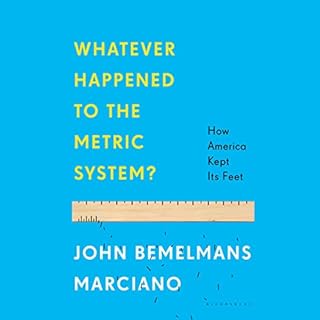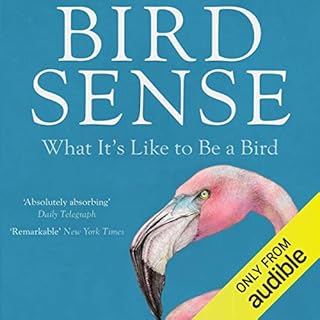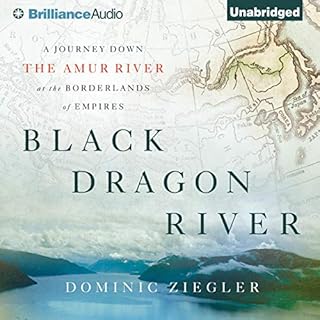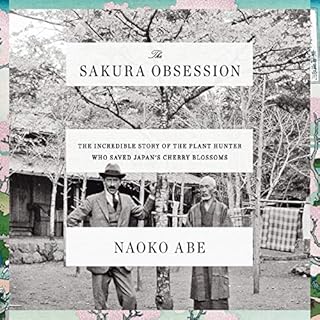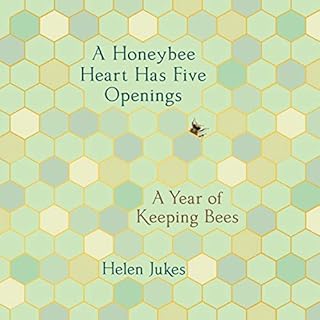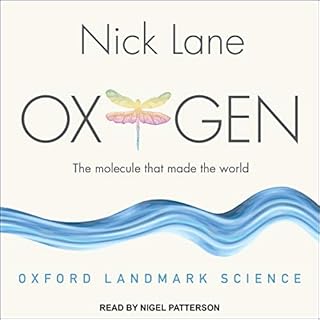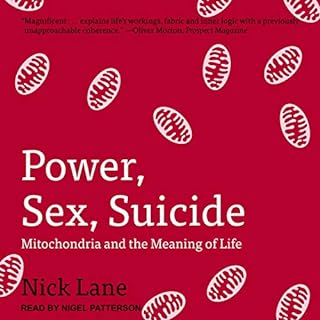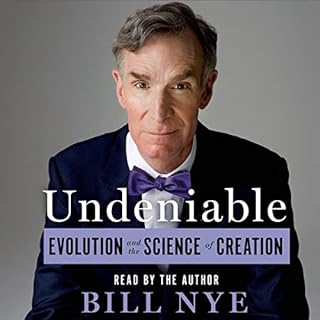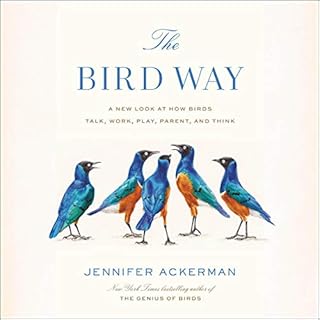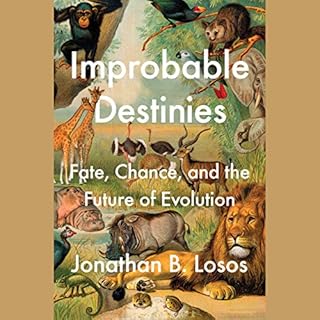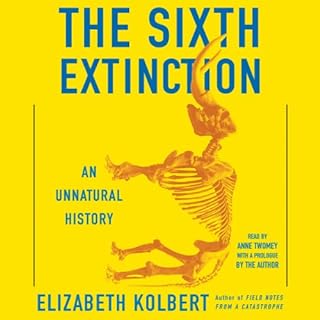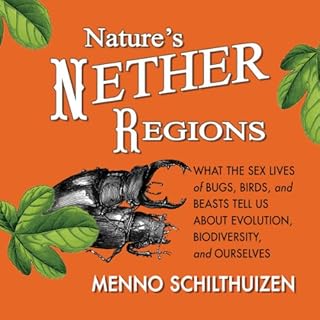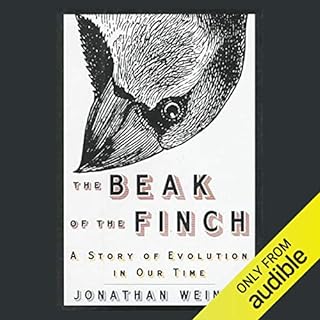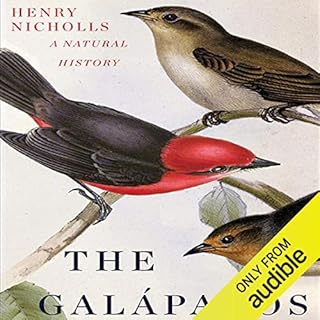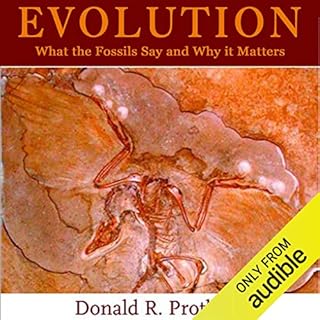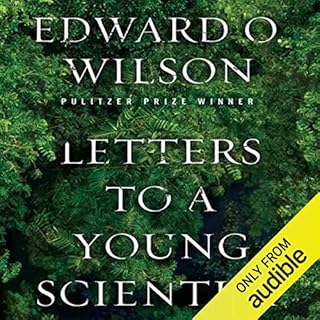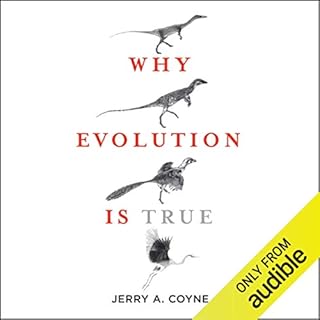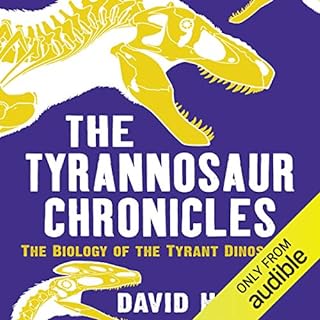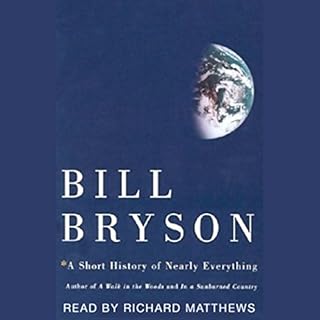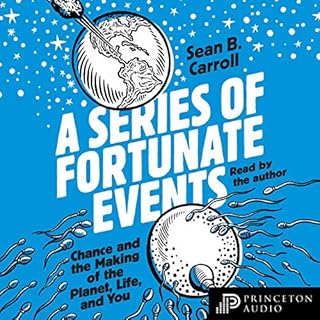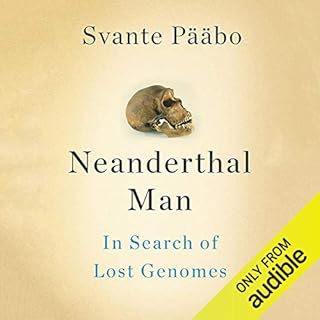
The Most Perfect Thing
Failed to add items
Add to Cart failed.
Add to Wish List failed.
Remove from wishlist failed.
Adding to library failed
Follow podcast failed
Unfollow podcast failed
$0.99/mo first 3 months
 Prime members: New to Audible?
Prime members: New to Audible?Get 2 free audiobooks during trial.
Buy for $19.18
No default payment method selected.
We are sorry. We are not allowed to sell this product with the selected payment method
-
Narrated by:
-
Gareth Armstrong
-
By:
-
Tim Birkhead
About this listen
How are eggs of different shapes made, and why are they the shapes they are? When does the shell of an egg harden? Why do some eggs contain two yolks? How are the colours and patterns of eggshells created, and why do they vary? And which end of an egg is laid first - the blunt end or the pointy end?
These are just some of the questions The Most Perfect Thing answers, as the journey of a bird's egg from creation and fertilisation to its eventual hatching is examined, with current scientific knowledge placed within an historical context.
Beginning with an examination of the stunning eggs of the guillemot, each of which is so variable in pattern and colour that no two are ever the same, acclaimed ornithologist Tim Birkhead then looks at the eggs of hens, cuckoos and many other birds, revealing weird and wonderful facts about these miracles of nature. Woven around and supporting these facts are extraordinary stories of the individuals who, from as far back as ancient Egypt, have been fixated on the study and collection of eggs, not always to the benefit of their conservation.
Firmly grounded in science and enriched by a wealth of observation drawn from a lifetime spent studying birds, The Most Perfect Thing is an illuminating and engaging exploration of the science behind eggs and the history of man's obsession with them.
©2016 Tim Birkhead (P)2016 Audible, LtdListeners also enjoyed...
-
The Secret Lives of Bats
- My Adventures with the World's Most Misunderstood Mammals
- By: Merlin Tuttle
- Narrated by: Sean Runnette
- Length: 8 hrs and 42 mins
- Unabridged
-
Overall5 out of 5 stars 107
-
Performance4.5 out of 5 stars 90
-
Story5 out of 5 stars 91
A lifetime of adventures with bats around the world reveals why these special and imperiled creatures should be protected rather than feared.
-
1 out of 5 stars
-
Very Disappointing
- By R. Klein on 07-31-23
By: Merlin Tuttle
-
Whatever Happened to the Metric System?
- How America Kept Its Feet
- By: John Bemelmans Marciano
- Narrated by: Neil Hellegers
- Length: 9 hrs and 13 mins
- Unabridged
-
Overall4.5 out of 5 stars 53
-
Performance4.5 out of 5 stars 42
-
Story4.5 out of 5 stars 41
The American standard system of measurement is a unique and odd thing to behold with its esoteric, inconsistent standards: 12 inches in a foot, three feet in a yard, 16 ounces in a pound, 100 pennies to the dollar. For something as elemental as counting and estimating the world around us, it seems like a confusing tool to use. So how did we end up with it? Most of the rest of the world is on the metric system, and for a time in the 1970s America appeared ready to make the switch.
-
2 out of 5 stars
-
Deceptive Title - Not really about the US
- By Kah on 04-08-22
-
Bird Sense
- What It's Like to Be a Bird
- By: Tim Birkhead
- Narrated by: Robin Sachs
- Length: 7 hrs and 18 mins
- Unabridged
-
Overall4 out of 5 stars 302
-
Performance4 out of 5 stars 270
-
Story4 out of 5 stars 270
What is it like to be a swift, flying at over one hundred kilometres an hour? Or a kiwi, plodding flightlessly among the humid undergrowth in the pitch dark of a New Zealand night? And what is going on inside the head of a nightingale as it sings, and how does its brain improvise? Bird Sense addresses questions like these and many more, by describing the senses of birds that enable them to interpret their environment and to interact with each other.
-
5 out of 5 stars
-
Are You A Serious Birdwatcher?
- By Kathy in CA on 11-14-17
By: Tim Birkhead
-
What's Gotten into You
- The Story of Your Body's Atoms, from the Big Bang Through Last Night's Dinner
- By: Dan Levitt
- Narrated by: Mike Chamberlain
- Length: 12 hrs and 38 mins
- Unabridged
-
Overall4.5 out of 5 stars 125
-
Performance5 out of 5 stars 104
-
Story5 out of 5 stars 104
Every one of us contains a billion times more atoms than all the grains of sand in the earth’s deserts. If you weigh 150 pounds, you’ve got enough carbon to make 25 pounds of charcoal, enough salt to fill a saltshaker, enough chlorine to disinfect several backyard swimming pools, and enough iron to forge a 3-inch nail. But how did these elements combine to make us human?
-
5 out of 5 stars
-
One of the Very Best Science Books I have Read
- By TStair on 03-20-23
By: Dan Levitt
-
A History of the Human Brain
- From the Sea Sponge to CRISPR, How Our Brain Evolved
- By: Bret Stetka
- Narrated by: Sean Pratt
- Length: 7 hrs and 54 mins
- Unabridged
-
Overall4.5 out of 5 stars 125
-
Performance4.5 out of 5 stars 92
-
Story4.5 out of 5 stars 92
Just over 125,000 years ago, humanity was going extinct until a dramatic shift occurred—Homo sapiens started tracking the tides in order to eat the nearby oysters. Before long, they’d pulled themselves back from the brink of extinction. The human brain, and its evolutionary journey, is unlike anything else in history. In A History of the Human Brain, Bret Stetka takes listeners through that far-reaching journey. He also tackles the question of where the brain will take us next, exploring the burgeoning concepts of epigenetics and new technologies like CRISPR.
-
5 out of 5 stars
-
Fascinating survey of the evolution of the human brain
- By Cosmos on 03-30-21
By: Bret Stetka
-
Black Dragon River
- A Journey Down the Amur River at the Borderlands of Empires
- By: Dominic Ziegler
- Narrated by: Steve West
- Length: 14 hrs and 6 mins
- Unabridged
-
Overall4 out of 5 stars 48
-
Performance4.5 out of 5 stars 42
-
Story4 out of 5 stars 41
Black Dragon River is a personal journey down one of Asia's great rivers. The world's ninth largest river, the Amur serves as a large part of the border between Russia and China. As a crossroads for the great empires of Asia, this area offers journalist Dominic Ziegler a lens with which to examine the societies at Europe's only borderland with East Asia.
-
5 out of 5 stars
-
INFORMATIVE
- By JK on 10-14-22
By: Dominic Ziegler
-
The Secret Lives of Bats
- My Adventures with the World's Most Misunderstood Mammals
- By: Merlin Tuttle
- Narrated by: Sean Runnette
- Length: 8 hrs and 42 mins
- Unabridged
-
Overall5 out of 5 stars 107
-
Performance4.5 out of 5 stars 90
-
Story5 out of 5 stars 91
A lifetime of adventures with bats around the world reveals why these special and imperiled creatures should be protected rather than feared.
-
1 out of 5 stars
-
Very Disappointing
- By R. Klein on 07-31-23
By: Merlin Tuttle
-
Whatever Happened to the Metric System?
- How America Kept Its Feet
- By: John Bemelmans Marciano
- Narrated by: Neil Hellegers
- Length: 9 hrs and 13 mins
- Unabridged
-
Overall4.5 out of 5 stars 53
-
Performance4.5 out of 5 stars 42
-
Story4.5 out of 5 stars 41
The American standard system of measurement is a unique and odd thing to behold with its esoteric, inconsistent standards: 12 inches in a foot, three feet in a yard, 16 ounces in a pound, 100 pennies to the dollar. For something as elemental as counting and estimating the world around us, it seems like a confusing tool to use. So how did we end up with it? Most of the rest of the world is on the metric system, and for a time in the 1970s America appeared ready to make the switch.
-
2 out of 5 stars
-
Deceptive Title - Not really about the US
- By Kah on 04-08-22
-
Bird Sense
- What It's Like to Be a Bird
- By: Tim Birkhead
- Narrated by: Robin Sachs
- Length: 7 hrs and 18 mins
- Unabridged
-
Overall4 out of 5 stars 302
-
Performance4 out of 5 stars 270
-
Story4 out of 5 stars 270
What is it like to be a swift, flying at over one hundred kilometres an hour? Or a kiwi, plodding flightlessly among the humid undergrowth in the pitch dark of a New Zealand night? And what is going on inside the head of a nightingale as it sings, and how does its brain improvise? Bird Sense addresses questions like these and many more, by describing the senses of birds that enable them to interpret their environment and to interact with each other.
-
5 out of 5 stars
-
Are You A Serious Birdwatcher?
- By Kathy in CA on 11-14-17
By: Tim Birkhead
-
What's Gotten into You
- The Story of Your Body's Atoms, from the Big Bang Through Last Night's Dinner
- By: Dan Levitt
- Narrated by: Mike Chamberlain
- Length: 12 hrs and 38 mins
- Unabridged
-
Overall4.5 out of 5 stars 125
-
Performance5 out of 5 stars 104
-
Story5 out of 5 stars 104
Every one of us contains a billion times more atoms than all the grains of sand in the earth’s deserts. If you weigh 150 pounds, you’ve got enough carbon to make 25 pounds of charcoal, enough salt to fill a saltshaker, enough chlorine to disinfect several backyard swimming pools, and enough iron to forge a 3-inch nail. But how did these elements combine to make us human?
-
5 out of 5 stars
-
One of the Very Best Science Books I have Read
- By TStair on 03-20-23
By: Dan Levitt
-
A History of the Human Brain
- From the Sea Sponge to CRISPR, How Our Brain Evolved
- By: Bret Stetka
- Narrated by: Sean Pratt
- Length: 7 hrs and 54 mins
- Unabridged
-
Overall4.5 out of 5 stars 125
-
Performance4.5 out of 5 stars 92
-
Story4.5 out of 5 stars 92
Just over 125,000 years ago, humanity was going extinct until a dramatic shift occurred—Homo sapiens started tracking the tides in order to eat the nearby oysters. Before long, they’d pulled themselves back from the brink of extinction. The human brain, and its evolutionary journey, is unlike anything else in history. In A History of the Human Brain, Bret Stetka takes listeners through that far-reaching journey. He also tackles the question of where the brain will take us next, exploring the burgeoning concepts of epigenetics and new technologies like CRISPR.
-
5 out of 5 stars
-
Fascinating survey of the evolution of the human brain
- By Cosmos on 03-30-21
By: Bret Stetka
-
Black Dragon River
- A Journey Down the Amur River at the Borderlands of Empires
- By: Dominic Ziegler
- Narrated by: Steve West
- Length: 14 hrs and 6 mins
- Unabridged
-
Overall4 out of 5 stars 48
-
Performance4.5 out of 5 stars 42
-
Story4 out of 5 stars 41
Black Dragon River is a personal journey down one of Asia's great rivers. The world's ninth largest river, the Amur serves as a large part of the border between Russia and China. As a crossroads for the great empires of Asia, this area offers journalist Dominic Ziegler a lens with which to examine the societies at Europe's only borderland with East Asia.
-
5 out of 5 stars
-
INFORMATIVE
- By JK on 10-14-22
By: Dominic Ziegler
-
The Sakura Obsession
- The Incredible Story of the Plant Hunter Who Saved Japan's Cherry Blossoms
- By: Naoko Abe
- Narrated by: Ellen Archer, Nicholas Guy Smith
- Length: 8 hrs and 55 mins
- Unabridged
-
Overall4.5 out of 5 stars 33
-
Performance4.5 out of 5 stars 27
-
Story4.5 out of 5 stars 27
Collingwood Ingram - known as “Cherry” for his defining passion - was born in 1880 and lived until he was a hundred, witnessing a fraught century of conflict and change. Visiting Japan in 1902 and again in 1907, he fell in love with the country’s distinctive cherry blossoms, or sakura, and brought back hundreds of cuttings with him to England, where he created a garden of cherry varieties. On a 1926 trip to Japan to search for new specimens, Ingram was shocked to find a dramatic decline in local cherry diversity.
-
5 out of 5 stars
-
AWESOME 👌
- By DM2010 on 12-01-21
By: Naoko Abe
-
The Last Crocodile Hunter
- By: Bob Irwin, Amanda French
- Narrated by: David Tredinnick
- Length: 12 hrs and 20 mins
- Unabridged
-
Overall5 out of 5 stars 62
-
Performance5 out of 5 stars 58
-
Story5 out of 5 stars 58
Bob Irwin's extraordinary life as a wildlife pioneer, father to wildlife warrior Steve and founder of Australia Zoo, told in his own words. Bob Irwin grew up in the Dandenong Ranges, where his passion for wildlife was born. A near-death experience while working as a plumber made Bob realise he needed to follow his dreams, so he and his wife, Lyn, moved their young family to Queensland, where they opened a wildlife park on the Sunshine Coast. The Irwin children grew up in around the Beerwah Reptile and Wildlife Park....
-
5 out of 5 stars
-
Great story!
- By Amazon Customer on 01-06-22
By: Bob Irwin, and others
-
A Honeybee Heart Has Five Openings
- A Year of Keeping Bees
- By: Helen Jukes
- Narrated by: Mandy Williams
- Length: 7 hrs and 17 mins
- Unabridged
-
Overall4.5 out of 5 stars 42
-
Performance4.5 out of 5 stars 33
-
Story4.5 out of 5 stars 33
A Honeybee Heart Has Five Openings begins as the author is entering her 30s and feeling disconnected in her life. Uneasy about her future and struggling to settle into her new house in Oxford with its own small garden, she is brought back to a time of accompanying a friend in London - a beekeeper - on his hive visits. And as a gesture of good fortune for her new life, she is given a colony of honeybees. This is a subtle yet urgent mediation on uncertainty and hope, on solitude and friendship, on feelings of restlessness and on home; on how we might better know ourselves.
-
5 out of 5 stars
-
Love the story and information
- By Engraving Ladi on 08-26-23
By: Helen Jukes
-
Oxygen
- The Molecule That Made the World
- By: Nick Lane
- Narrated by: Nigel Patterson
- Length: 16 hrs and 35 mins
- Unabridged
-
Overall4.5 out of 5 stars 220
-
Performance4.5 out of 5 stars 174
-
Story4.5 out of 5 stars 172
Oxygen takes the listener on an enthralling journey, as gripping as a thriller, as it unravels the unexpected ways in which oxygen spurred the evolution of life and death.
-
5 out of 5 stars
-
A Story About Pretty Much Everything
- By ZebraBear on 09-09-20
By: Nick Lane
-
The Rise and Reign of the Mammals
- A New History, from the Shadow of the Dinosaurs to Us
- By: Steve Brusatte
- Narrated by: Patrick Lawlor
- Length: 13 hrs and 25 mins
- Unabridged
-
Overall4.5 out of 5 stars 536
-
Performance4.5 out of 5 stars 446
-
Story4.5 out of 5 stars 447
We humans are the inheritors of a dynasty that has reigned over the planet for nearly 66 million years, through fiery cataclysm and ice ages: the mammals. Our lineage includes saber-toothed tigers, woolly mammoths, armadillos the size of a car, cave bears three times the weight of a grizzly, clever scurriers that outlasted Tyrannosaurus rex, and even other types of humans, like Neanderthals.
-
5 out of 5 stars
-
Fantastic Book
- By Peter Jensen on 09-08-22
By: Steve Brusatte
-
Power, Sex, Suicide
- Mitochondria and the Meaning of Life
- By: Nick Lane
- Narrated by: Nigel Patterson
- Length: 15 hrs and 54 mins
- Unabridged
-
Overall4.5 out of 5 stars 241
-
Performance5 out of 5 stars 197
-
Story5 out of 5 stars 199
In this fascinating and thought-provoking book, author Nick Lane brings together the latest research findings in the exciting field of mitochondria research to reveal how our growing understanding of mitochondria is shedding light on how complex life evolved, why sex arose (why don't we just bud?), and why we age and die. This understanding is of fundamental importance, both in understanding how we and all other complex life came to be, but also in order to be able to control our own illnesses, and delay our degeneration and death.
-
5 out of 5 stars
-
Possibly the heaviest Nick Lane book I've read
- By Mic Mises on 05-20-19
By: Nick Lane
-
Undeniable
- Evolution and the Science of Creation
- By: Bill Nye
- Narrated by: Bill Nye
- Length: 9 hrs and 29 mins
- Unabridged
-
Overall5 out of 5 stars 6,438
-
Performance5 out of 5 stars 5,847
-
Story4.5 out of 5 stars 5,826
Sparked by a controversial debate in February 2014, Bill Nye has set off on an energetic campaign to spread awareness of evolution and the powerful way it shapes our lives. In Undeniable: Evolution and the Science of Creation, he explains why race does not really exist; evaluates the true promise and peril of genetically modified food; reveals how new species are born, in a dog kennel and in a London subway; takes a stroll through 4.5 billion years of time; and explores the new search for alien life, including aliens right here on Earth.
-
4 out of 5 stars
-
Leasurly read for those who don't want equations
- By AxeanaB on 02-05-15
By: Bill Nye
-
Superlative
- The Biology of Extremes
- By: Matthew D. LaPlante
- Narrated by: George Newbern
- Length: 9 hrs and 27 mins
- Unabridged
-
Overall4.5 out of 5 stars 93
-
Performance4.5 out of 5 stars 79
-
Story4.5 out of 5 stars 79
The world's largest land mammal could help us end cancer. The fastest bird is showing us how to solve a century-old engineering mystery. The oldest tree is giving us insights into climate change. The loudest whale is offering clues about the impact of solar storms. For a long time, scientists ignored superlative life forms as outliers. Increasingly, though, researchers are coming to see great value in studying plants and animals that exist on the outermost edges of the bell curve.
-
5 out of 5 stars
-
Fascinating survey of amazing biology
- By Nerd's-eye view on 12-06-19
-
The Bird Way
- A New Look at How Birds Talk, Work, Play, Parent, and Think
- By: Jennifer Ackerman
- Narrated by: Jennifer Ackerman
- Length: 11 hrs and 54 mins
- Unabridged
-
Overall4.5 out of 5 stars 353
-
Performance5 out of 5 stars 300
-
Story4.5 out of 5 stars 297
"There is the mammal way and there is the bird way." But the bird way is much more than a unique pattern of brain wiring, and lately, scientists have taken a new look at bird behaviors they have, for years, dismissed as anomalies or mysteries - what they are finding is upending the traditional view of how birds conduct their lives, how they communicate, forage, court, breed, survive. They are also revealing the remarkable intelligence underlying these activities, abilities we once considered uniquely our own.
-
5 out of 5 stars
-
Good Work but it doesn’t scale
- By Stanley Lippman on 07-02-20
-
Improbable Destinies
- Fate, Chance, and the Future of Evolution
- By: Jonathan B. Losos
- Narrated by: Marc Cashman
- Length: 12 hrs
- Unabridged
-
Overall4.5 out of 5 stars 90
-
Performance4.5 out of 5 stars 78
-
Story4.5 out of 5 stars 78
Improbable Destinies will change the way we think and talk about evolution. Losos' insights into natural selection and evolutionary change have far-reaching applications for protecting ecosystems, securing our food supply, and fighting off harmful viruses and bacteria. This compelling narrative offers a new understanding of ourselves and our role in the natural world and the cosmos.
-
2 out of 5 stars
-
Too much trivia.
- By Anthony W. Shallin on 07-08-18
-
The Sixth Extinction
- An Unnatural History
- By: Elizabeth Kolbert
- Narrated by: Anne Twomey
- Length: 9 hrs and 59 mins
- Unabridged
-
Overall4.5 out of 5 stars 5,531
-
Performance4.5 out of 5 stars 4,833
-
Story4.5 out of 5 stars 4,800
A major audiobook about the future of the world, blending intellectual and natural history and field reporting into a powerful account of the mass extinction unfolding before our eyes. Over the last half a billion years, there have been five mass extinctions, when the diversity of life on Earth suddenly and dramatically contracted. Scientists around the world are currently monitoring the sixth extinction, predicted to be the most devastating extinction event since the asteroid impact that wiped out the dinosaurs.
-
5 out of 5 stars
-
Lifts you out of the ordinary
- By Regina on 04-28-14
-
The Greatest Show on Earth
- The Evidence for Evolution
- By: Richard Dawkins
- Narrated by: Richard Dawkins, Lalla Ward
- Length: 14 hrs and 36 mins
- Unabridged
-
Overall4.5 out of 5 stars 3,155
-
Performance4.5 out of 5 stars 2,230
-
Story4.5 out of 5 stars 2,207
The Greatest Show on Earth is a stunning counterattack on advocates of "Intelligent Design," explaining the evidence for evolution while exposing the absurdities of the creationist "argument". Dawkins sifts through rich layers of scientific evidence: from living examples of natural selection to clues in the fossil record; from natural clocks that mark the vast epochs wherein evolution ran its course to the intricacies of developing embryos; from plate tectonics to molecular genetics.
-
5 out of 5 stars
-
Back to His Strong Suit
- By Dalton on 09-23-09
By: Richard Dawkins
Critic reviews
"The title is also a perfect description of the book itself - full of wonder and surprise and beautifully written." (Nick Davies, author of Cuckoo)
Related to this topic
-
I, Mammal
- By: Liam Drew
- Narrated by: Neil Gardner
- Length: 11 hrs and 26 mins
- Unabridged
-
Overall5 out of 5 stars 22
-
Performance5 out of 5 stars 20
-
Story5 out of 5 stars 20
A list of the attributes that define a mammal is a ragbag of things - fur, live birth, three bones in the middle ear, a brain whose two halves are robustly joined together.... But this curious collection of features contain the roots of all the biology that makes us what we are: monkeys with massive brains who parent extensively, enjoy sport and think lots. Which is to say, what makes us mammals makes us human.
-
4 out of 5 stars
-
Who knew?
- By Fitmen on 04-25-18
By: Liam Drew
-
Nature's Nether Regions
- What the Sex Lives of Bugs, Birds, and Beasts Tell Us About Evolution, Biodiversity, and Ourselves
- By: Menno Schithuizen
- Narrated by: Steven Menasche
- Length: 7 hrs and 51 mins
- Unabridged
-
Overall4.5 out of 5 stars 35
-
Performance4.5 out of 5 stars 32
-
Story4.5 out of 5 stars 30
The story of evolution as you’ve never heard it before. What’s the easiest way to tell species apart? Check their genitals. Researching private parts was long considered taboo, but scientists are now beginning to understand that the wild diversity of sex organs across species can tell us a lot about evolution. Menno Schilthuizen invites listeners to join him as he uncovers the ways the shapes and functions of genitalia have been molded by complex Darwinian struggles.
-
5 out of 5 stars
-
A New Favorite
- By S. Pepper on 05-15-15
-
Superlative
- The Biology of Extremes
- By: Matthew D. LaPlante
- Narrated by: George Newbern
- Length: 9 hrs and 27 mins
- Unabridged
-
Overall4.5 out of 5 stars 93
-
Performance4.5 out of 5 stars 79
-
Story4.5 out of 5 stars 79
The world's largest land mammal could help us end cancer. The fastest bird is showing us how to solve a century-old engineering mystery. The oldest tree is giving us insights into climate change. The loudest whale is offering clues about the impact of solar storms. For a long time, scientists ignored superlative life forms as outliers. Increasingly, though, researchers are coming to see great value in studying plants and animals that exist on the outermost edges of the bell curve.
-
5 out of 5 stars
-
Fascinating survey of amazing biology
- By Nerd's-eye view on 12-06-19
-
The Beak of the Finch
- A Story of Evolution in Our Time
- By: Jonathan Weiner
- Narrated by: Victor Bevine
- Length: 12 hrs and 14 mins
- Unabridged
-
Overall4.5 out of 5 stars 471
-
Performance4.5 out of 5 stars 380
-
Story4.5 out of 5 stars 379
Rosemary and Peter Grant and those assisting them have spend 20 years on Daphne Major, an island in the Galapagos, studying natural selection. They recognize each individual bird on the island, when there are 400 at the time of the author's visit or when there are over a thousand. They have observed about 20 generations of finches - continuously.Jonathan Weiner follows these scientists as they watch Darwin's finches and come up with a new understanding of life itself.
-
5 out of 5 stars
-
Fascinating in-depth look at evolution in action
- By Philip on 05-15-11
By: Jonathan Weiner
-
The Galápagos
- A Natural History
- By: Henry Nicholls
- Narrated by: James Adams
- Length: 5 hrs and 30 mins
- Unabridged
-
Overall4.5 out of 5 stars 95
-
Performance4.5 out of 5 stars 85
-
Story4.5 out of 5 stars 84
The Galapagos were once known to the sailors and pirates who encountered them as Las Encantadas: the enchanted islands, home to exotic creatures and dramatic volcanic scenery. In The Galapagos, science writer Henry Nicholls offers a lively natural and human history of the archipelago, charting its evolution from deserted wilderness to scientific resource (made famous by Charles Darwin) and global ecotourism hot spot.
-
5 out of 5 stars
-
Thought-Provoking
- By Jean on 10-23-18
By: Henry Nicholls
-
Paleontology
- A Brief History of Life
- By: Ian Tattersall
- Narrated by: Brett Barry
- Length: 6 hrs and 49 mins
- Unabridged
-
Overall4 out of 5 stars 112
-
Performance4.5 out of 5 stars 71
-
Story4 out of 5 stars 72
Ian Tattersall, a highly esteemed figure in the fields of anthropology, archaeology, and paleontology, leads a fascinating tour of the history of life and the evolution of human beings. Starting at the very beginning, Tattersall examines patterns of change in the biosphere over time, and the correlations of biological events with physical changes in the Earth's environment.
-
5 out of 5 stars
-
great summary of where we are with understanding
- By david on 06-25-11
By: Ian Tattersall
-
I, Mammal
- By: Liam Drew
- Narrated by: Neil Gardner
- Length: 11 hrs and 26 mins
- Unabridged
-
Overall5 out of 5 stars 22
-
Performance5 out of 5 stars 20
-
Story5 out of 5 stars 20
A list of the attributes that define a mammal is a ragbag of things - fur, live birth, three bones in the middle ear, a brain whose two halves are robustly joined together.... But this curious collection of features contain the roots of all the biology that makes us what we are: monkeys with massive brains who parent extensively, enjoy sport and think lots. Which is to say, what makes us mammals makes us human.
-
4 out of 5 stars
-
Who knew?
- By Fitmen on 04-25-18
By: Liam Drew
-
Nature's Nether Regions
- What the Sex Lives of Bugs, Birds, and Beasts Tell Us About Evolution, Biodiversity, and Ourselves
- By: Menno Schithuizen
- Narrated by: Steven Menasche
- Length: 7 hrs and 51 mins
- Unabridged
-
Overall4.5 out of 5 stars 35
-
Performance4.5 out of 5 stars 32
-
Story4.5 out of 5 stars 30
The story of evolution as you’ve never heard it before. What’s the easiest way to tell species apart? Check their genitals. Researching private parts was long considered taboo, but scientists are now beginning to understand that the wild diversity of sex organs across species can tell us a lot about evolution. Menno Schilthuizen invites listeners to join him as he uncovers the ways the shapes and functions of genitalia have been molded by complex Darwinian struggles.
-
5 out of 5 stars
-
A New Favorite
- By S. Pepper on 05-15-15
-
Superlative
- The Biology of Extremes
- By: Matthew D. LaPlante
- Narrated by: George Newbern
- Length: 9 hrs and 27 mins
- Unabridged
-
Overall4.5 out of 5 stars 93
-
Performance4.5 out of 5 stars 79
-
Story4.5 out of 5 stars 79
The world's largest land mammal could help us end cancer. The fastest bird is showing us how to solve a century-old engineering mystery. The oldest tree is giving us insights into climate change. The loudest whale is offering clues about the impact of solar storms. For a long time, scientists ignored superlative life forms as outliers. Increasingly, though, researchers are coming to see great value in studying plants and animals that exist on the outermost edges of the bell curve.
-
5 out of 5 stars
-
Fascinating survey of amazing biology
- By Nerd's-eye view on 12-06-19
-
The Beak of the Finch
- A Story of Evolution in Our Time
- By: Jonathan Weiner
- Narrated by: Victor Bevine
- Length: 12 hrs and 14 mins
- Unabridged
-
Overall4.5 out of 5 stars 471
-
Performance4.5 out of 5 stars 380
-
Story4.5 out of 5 stars 379
Rosemary and Peter Grant and those assisting them have spend 20 years on Daphne Major, an island in the Galapagos, studying natural selection. They recognize each individual bird on the island, when there are 400 at the time of the author's visit or when there are over a thousand. They have observed about 20 generations of finches - continuously.Jonathan Weiner follows these scientists as they watch Darwin's finches and come up with a new understanding of life itself.
-
5 out of 5 stars
-
Fascinating in-depth look at evolution in action
- By Philip on 05-15-11
By: Jonathan Weiner
-
The Galápagos
- A Natural History
- By: Henry Nicholls
- Narrated by: James Adams
- Length: 5 hrs and 30 mins
- Unabridged
-
Overall4.5 out of 5 stars 95
-
Performance4.5 out of 5 stars 85
-
Story4.5 out of 5 stars 84
The Galapagos were once known to the sailors and pirates who encountered them as Las Encantadas: the enchanted islands, home to exotic creatures and dramatic volcanic scenery. In The Galapagos, science writer Henry Nicholls offers a lively natural and human history of the archipelago, charting its evolution from deserted wilderness to scientific resource (made famous by Charles Darwin) and global ecotourism hot spot.
-
5 out of 5 stars
-
Thought-Provoking
- By Jean on 10-23-18
By: Henry Nicholls
-
Paleontology
- A Brief History of Life
- By: Ian Tattersall
- Narrated by: Brett Barry
- Length: 6 hrs and 49 mins
- Unabridged
-
Overall4 out of 5 stars 112
-
Performance4.5 out of 5 stars 71
-
Story4 out of 5 stars 72
Ian Tattersall, a highly esteemed figure in the fields of anthropology, archaeology, and paleontology, leads a fascinating tour of the history of life and the evolution of human beings. Starting at the very beginning, Tattersall examines patterns of change in the biosphere over time, and the correlations of biological events with physical changes in the Earth's environment.
-
5 out of 5 stars
-
great summary of where we are with understanding
- By david on 06-25-11
By: Ian Tattersall
-
Evolution
- What the Fossils Say and Why it Matters: Adapted for Audio
- By: Donald R. Prothero
- Narrated by: John Bishop
- Length: 7 hrs and 14 mins
- Abridged
-
Overall4.5 out of 5 stars 94
-
Performance4.5 out of 5 stars 87
-
Story4.5 out of 5 stars 87
Over the past 20 years, paleontologists have made tremendous fossil discoveries, including fossils that mark the growth of whales, manatees, and seals from land mammals and the origins of elephants, horses, and rhinos. Today there exists an amazing diversity of fossil humans, suggesting we walked upright long before we acquired large brains, and new evidence from molecules that enable scientists to decipher the tree of life as never before.
-
2 out of 5 stars
-
NOT WORTH THE PRICE OF ADDMISSION
- By CRAIG on 12-25-14
-
Letters to a Young Scientist
- By: Edward O. Wilxon
- Narrated by: Joe Barrett
- Length: 4 hrs and 57 mins
- Unabridged
-
Overall4.5 out of 5 stars 316
-
Performance4.5 out of 5 stars 270
-
Story4.5 out of 5 stars 272
Edward O. Wilson has distilled sixty years of teaching into a book for students, young and old. Reflecting on his coming-of-age in the South as a Boy Scout and a lover of ants and butterflies, Wilson threads these twenty-one letters, each richly illustrated, with autobiographical anecdotes that illuminate his career - both his successes and his failures - and his motivations for becoming a biologist.
-
2 out of 5 stars
-
Long on biography, short on advice
- By A. Mandelin on 08-02-18
By: Edward O. Wilxon
-
Why Evolution Is True
- By: Jerry A. Coyne
- Narrated by: Victor Bevine
- Length: 9 hrs and 55 mins
- Unabridged
-
Overall4.5 out of 5 stars 1,925
-
Performance4.5 out of 5 stars 1,441
-
Story4.5 out of 5 stars 1,437
Why evolution is more than just a theory: it is a fact. In all the current highly publicized debates about creationism and its descendant "intelligent design", there is an element of the controversy that is rarely mentioned: the evidence, the empirical truth of evolution by natural selection.
-
5 out of 5 stars
-
As great as everyone says it is
- By Joseph on 12-01-10
By: Jerry A. Coyne
-
The Tyrannosaur Chronicles
- By: David Hone
- Narrated by: Gavin Osborn
- Length: 8 hrs and 30 mins
- Unabridged
-
Overall4.5 out of 5 stars 185
-
Performance4.5 out of 5 stars 168
-
Story4.5 out of 5 stars 169
Adored by children and adults alike, tyrannosaurus is the most famous dinosaur in the world, one that pops up again and again in pop culture, often battling other beasts such as King Kong, triceratops, or velociraptors in Jurassic Park. But despite the hype, tyrannosaurus and the other tyrannosaurs are fascinating animals in their own right and are among the best-studied of all dinosaurs.
-
4 out of 5 stars
-
An Engaging Biography of the King
- By Erik on 08-06-18
By: David Hone
-
Feathers
- The Evolution of a Natural Miracle
- By: Thor Hanson
- Narrated by: Andy Ingalls
- Length: 8 hrs and 20 mins
- Unabridged
-
Overall4.5 out of 5 stars 164
-
Performance4 out of 5 stars 149
-
Story4.5 out of 5 stars 150
Feathers are an evolutionary marvel: Aerodynamic, insulating, beguiling. They date back more than 100 million years. Yet their story has never been fully told. In Feathers, biologist Thor Hanson details a sweeping natural history, as feathers have been used to fly, protect, attract, and adorn through time and place. Applying the research of paleontologists, ornithologists, biologists, engineers, and even art historians, Hanson asks: What are feathers? How did they evolve? What do they mean to us?
-
5 out of 5 stars
-
Fantastic Science and Fun
- By Chris Reich on 12-28-14
By: Thor Hanson
-
How to Clone a Mammoth
- The Science of De-Extinction
- By: Beth Shapiro
- Narrated by: Coleen Marlo
- Length: 7 hrs and 13 mins
- Unabridged
-
Overall4.5 out of 5 stars 128
-
Performance4.5 out of 5 stars 109
-
Story4.5 out of 5 stars 109
Could extinct species, like mammoths and passenger pigeons, be brought back to life? The science says yes. In How to Clone a Mammoth, Beth Shapiro, evolutionary biologist and pioneer in "ancient DNA" research, walks listeners through the astonishing and controversial process of de-extinction.
-
5 out of 5 stars
-
Very Readable Take on a Complex Subject
- By John on 04-26-15
By: Beth Shapiro
-
The Blind Watchmaker
- Why the Evidence of Evolution Reveals a Universe Without Design
- By: Richard Dawkins
- Narrated by: Richard Dawkins, Lalla Ward
- Length: 14 hrs and 40 mins
- Unabridged
-
Overall4.5 out of 5 stars 2,828
-
Performance4.5 out of 5 stars 2,448
-
Story4.5 out of 5 stars 2,419
The Blind Watchmaker, knowledgably narrated by author Richard Dawkins, is as prescient and timely a book as ever. The watchmaker belongs to the 18th-century theologian William Paley, who argued that just as a watch is too complicated and functional to have sprung into existence by accident, so too must all living things, with their far greater complexity, be purposefully designed. Charles Darwin's brilliant discovery challenged the creationist arguments; but only Richard Dawkins could have written this elegant riposte.
-
4 out of 5 stars
-
Challenging textbook more than an enjoyable listen
- By Eric on 01-15-12
By: Richard Dawkins
-
A Short History of Nearly Everything
- By: Bill Bryson
- Narrated by: Richard Matthews
- Length: 18 hrs and 13 mins
- Unabridged
-
Overall4.5 out of 5 stars 27,980
-
Performance4.5 out of 5 stars 21,252
-
Story4.5 out of 5 stars 21,148
Bill Bryson has been an enormously popular author both for his travel books and for his books on the English language. Now, this beloved comic genius turns his attention to science. Although he doesn't know anything about the subject (at first), he is eager to learn, and takes information that he gets from the world's leading experts and explains it to us in a way that makes it exciting and relevant.
-
5 out of 5 stars
-
The Only Book I reread imediatley after reading
- By Andrew on 11-09-09
By: Bill Bryson
-
A Series of Fortunate Events
- Chance and the Making of the Planet, Life, and You
- By: Sean B. Carroll
- Narrated by: Sean B. Carroll
- Length: 4 hrs and 48 mins
- Unabridged
-
Overall4.5 out of 5 stars 131
-
Performance5 out of 5 stars 111
-
Story4.5 out of 5 stars 109
Why is the world the way it is? How did we get here? Does everything happen for a reason, or are some things left to chance? Philosophers and theologians have pondered these questions for millennia, but startling scientific discoveries over the past half century are revealing that we live in a world driven by chance. A Series of Fortunate Events tells the story of the awesome power of chance and how it is the surprising source of all the beauty and diversity in the living world.
-
4 out of 5 stars
-
We are for a short time.
- By Anonymous User on 10-14-20
By: Sean B. Carroll
-
Neanderthal Man
- In Search of Lost Genomes
- By: Svante Pääbo
- Narrated by: Dennis Holland
- Length: 10 hrs and 36 mins
- Unabridged
-
Overall4 out of 5 stars 779
-
Performance4.5 out of 5 stars 690
-
Story4 out of 5 stars 694
A preeminent geneticist hunts the Neanderthal genome to answer the biggest question of them all: what does it mean to be human? What can we learn from the genes of our closest evolutionary relatives? Neanderthal Man tells the story of geneticist Svante Pbo’s mission to answer that question, beginning with the study of DNA in Egyptian mummies in the early 1980s and culminating in his sequencing of the Neanderthal genome in 2009.
-
5 out of 5 stars
-
Excellent science tale
- By Neuron on 01-19-15
By: Svante Pääbo
-
When Humans Nearly Vanished
- The Catastrophic Explosion of the Toba Volcano
- By: Donald R. Prothero
- Narrated by: Qarie Marshall
- Length: 6 hrs and 47 mins
- Unabridged
-
Overall4.5 out of 5 stars 119
-
Performance4.5 out of 5 stars 108
-
Story4.5 out of 5 stars 108
Some 73,000 years ago, the Mount Toba supervolcano in toda's Indonesia erupted, releasing the energy of a million tons of explosives. So much ash and debris was injected into the stratosphere that it partially blocked the sun's radiation and caused global temperatures to drop for a decade. In this book, Donald R. Prothero presents the controversial argument that the Toba catastrophe nearly wiped out the human race, leaving only about a thousand to ten thousand breeding pairs of humans worldwide.
-
1 out of 5 stars
-
A very special book
- By Scott Fitzsimmons on 02-02-19
-
First Peoples in a New World
- Colonizing Ice Age America
- By: David J. Meltzer
- Narrated by: Christopher Prince
- Length: 11 hrs
- Abridged
-
Overall4.5 out of 5 stars 181
-
Performance4.5 out of 5 stars 153
-
Story4.5 out of 5 stars 152
More than 12,000 years ago, in one of the greatest triumphs of prehistory, humans colonized North America, a continent that was then truly a new world. Just when and how they did so has been one of the most perplexing and controversial questions in archaeology.
-
3 out of 5 stars
-
Last Gasp of American Anthropological Orthodoxy
- By Thomas66 on 01-05-17
By: David J. Meltzer
What listeners say about The Most Perfect Thing
Average customer ratingsReviews - Please select the tabs below to change the source of reviews.
-
Overall5 out of 5 stars
-
Performance5 out of 5 stars
-
Story5 out of 5 stars
- Jonathan
- 11-01-18
Wonderful.
Entertaining and informative read. I suggest visiting a museum (e.g. AMNH) to view Guillemot eggs!
Something went wrong. Please try again in a few minutes.
You voted on this review!
You reported this review!
1 person found this helpful
-
Overall5 out of 5 stars
-
Performance5 out of 5 stars
-
Story5 out of 5 stars
- Timothy
- 03-24-21
Great book about eggs!!
This is the best book about eggs that I've ever read. It's also the only book about eggs I've ever read, because, well... actually it's the only book about eggs I've ever heard of!
But seriously, this is a super-interesting book. I would never have imagined that there was so much interesting, fascinating stuff to be said about eggs, but now I know!! This book is about 3/4 science and 1/4 history.
It's written in a very scientific manner -- as if the author were writing about physics or math or cosmology. I like books about those things, so I gave this a try and was not disappointed! If you're like me, get this book!
Something went wrong. Please try again in a few minutes.
You voted on this review!
You reported this review!
1 person found this helpful
-
Overall5 out of 5 stars
-
Story5 out of 5 stars
- Williams
- 03-06-18
loved it
Not only is it well written, but also one of the most interesting books I have ever read. It completely changed the way I view eggs. I have found myself talking about it to everyone I come in contact with.
Something went wrong. Please try again in a few minutes.
You voted on this review!
You reported this review!
1 person found this helpful




